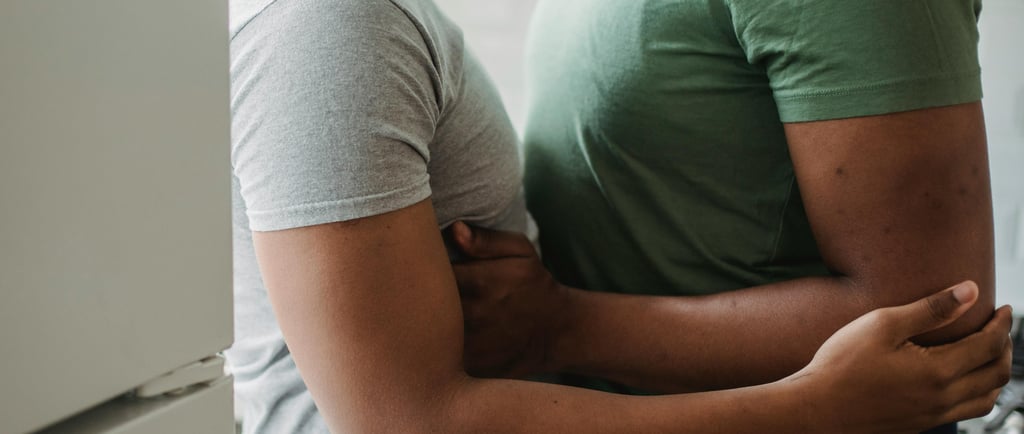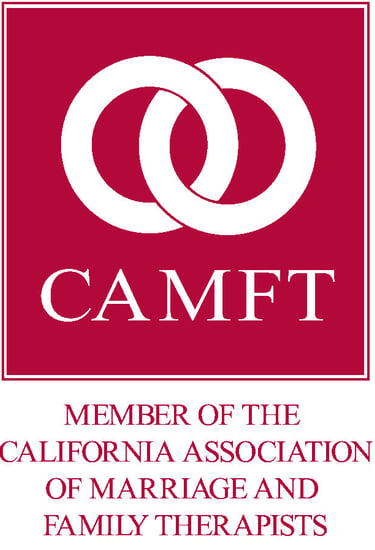Not Just a Fantasy: Real Relationships with Gay Daddies and Older Partners
Intergenerational gay couples are often misunderstood. This article explores the love, growth, and intimacy these partnerships can truly offer.
MEN'S THERAPYLGBTQ+GAY MEN'S THERAPY


A look at the intimacy, tenderness, and growth found in intergenerational gay relationships—and what they can teach us about healing and connection.
Intergenerational relationships between queer men are often misunderstood. They are sometimes dismissed as transactional, fetishized as erotic curiosities, or pathologized by old stereotypes. But in truth, these relationships—like all relationships—hold the potential for profound connection, healing, and mutual transformation.
Having keen interest and experience working with men in intergenerational relationships, I’ve been deeply moved by the tenderness, devotion, and emotional richness many of these partnerships contain. The love I’ve witnessed can be vibrant, deeply respectful, and grounded in a sense of shared reverence. These are relationships where play and seriousness, wisdom and discovery, coexist beautifully.
What Brings Two People Together Across Generations?
Every intergenerational relationship is unique. The magnetic pull between two men from different life stages can be shaped by many things: shared values, mutual care, erotic attraction, or the comfort of being seen in a way that transcends age.
For some younger partners, being with an older man brings a sense of stability, mentorship, and safety. It can offer a healing counterpoint to earlier experiences of rejection or loss. For older partners, the relationship might spark a renewed sense of vitality, intimacy, or joy—especially for those who came of age in times when queer desire had to be hidden or denied. For older partners, being with a younger man can feel like a second chance if, for safety or other reasons, they could not be out thus limiting their experience the messiness and beauty of early adulthood that many of their heteronormative peers lived.
Queerness has always reimagined kinship, intimacy, and what it means to care for one another. These partnerships are a part of that legacy.
Beyond the Stereotypes
Mainstream narratives often reduce intergenerational relationships to harmful clichés. The myth of the “predatory older man” looms large, unfairly casting suspicion on relationships rooted in genuine care. While it’s essential to remain aware of issues around power and consent in any relationship, it’s just as important to name the damage that these assumptions can do—especially when they silence the lived truth of many loving, respectful couples.
In reality, these relationships can defy traditional scripts and create something refreshingly authentic. Age doesn’t preclude emotional attunement, shared goals, or romantic devotion. In fact, many intergenerational couples speak of feeling deeply chosen by one another in ways they haven’t experienced before.
Honoring Desire, History, and Connection
There is also a historical and cultural dimension to consider. Many older gay men came of age during times when it was dangerous to be visible—let alone to date, experiment, or form lasting queer bonds. Their resilience, perspective, and survival are part of our collective inheritance. Younger queer folks, meanwhile, often bring a beautiful willingness to love publicly and freely, helping to rewrite the cultural narrative.
When these two worlds meet, something powerful happens. It’s not just about romance—it’s about remembrance, affirmation, and mutual becoming.
Relationships Like Any Other—And Like No Other
Like all relationships, intergenerational partnerships come with complexities: navigating differences in communication style, energy levels, life experience, or family dynamics. But at their core, what makes these relationships work is the same as any other: vulnerability, respect, shared values, and the willingness to meet one another where they are.
Therapeutic support can be helpful not because these couples are broken, but because they, like all of us, deserve spaces where their relationships are taken seriously and their unique challenges and joys are honored.
That’s also part of the intention behind forming queer intergenerational spaces—like the intergenerational queer kinship group now in development. These spaces allow people to move beyond assumptions and projections and into real connection: to speak, listen, and learn from one another heart to heart. That kind of uncovering is not just healing—it’s liberating.
This article is a companion to an earlier piece that explores the emotional, erotic, and historical layers of cross-generational longing in queer life.
To read that reflection on grief, shame, and desire—set against the backdrop of San Francisco’s Twin Peaks Tavern—visit: Longing for Daddy: Gay Desire, Generational Wounds, and the Therapy Room
If you're interested in exploring psychotherapy, click here now to schedule a free consultation





